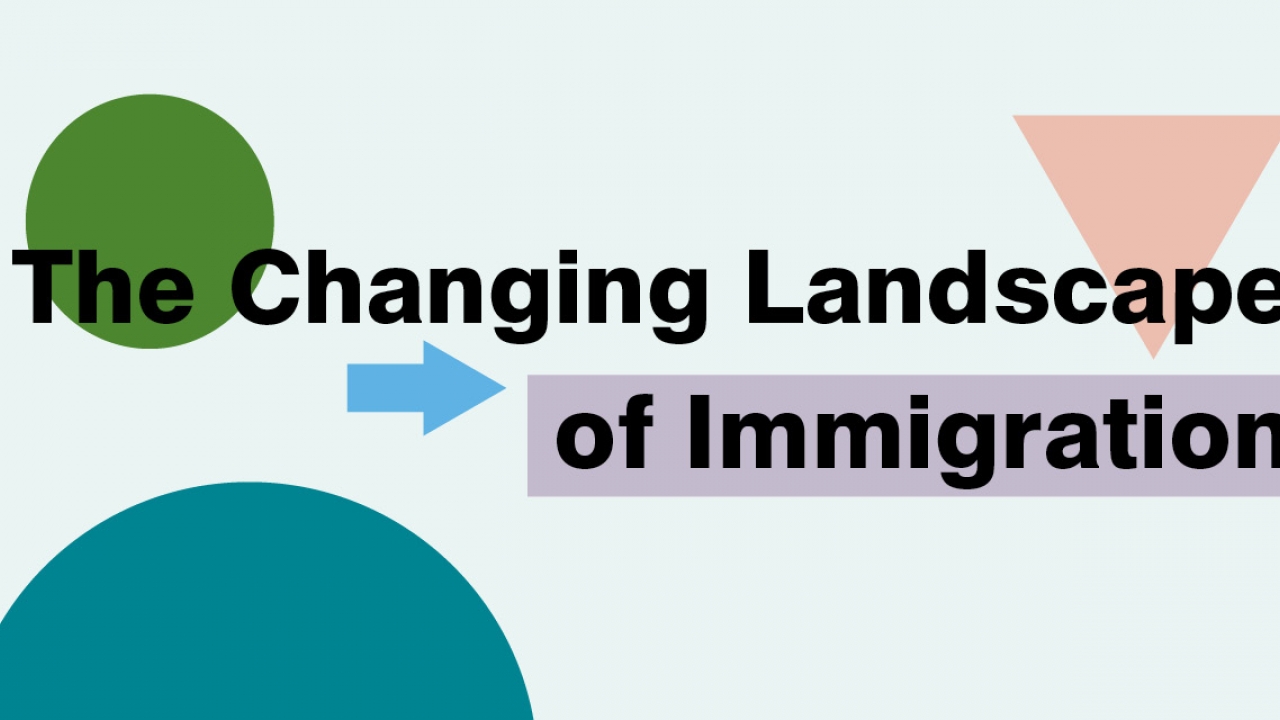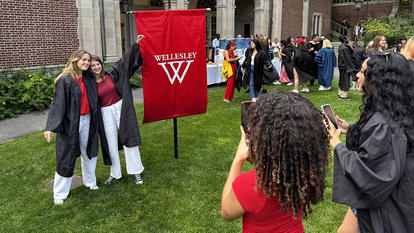Wellesley to Host Panel Discussion on the Future of Immigration

On February 27, three immigration experts will bring the nationwide conversation about immigration and border control policies to the Wellesley community in a panel discussion hosted by the Slater International Center and Wellesley’s Working Group on the Effects of Immigration Policy.
The panel, titled “The Changing Landscape of Immigration: Beyond the Headlines” and moderated by Jennifer Musto, assistant professor of women’s and gender studies at Wellesley, will address Deferred Action for Childhood Arrivals (DACA); asylum; changing immigration policies; and ways to get involved in the issues via law, social justice, history, and advocacy. Joining Musto will be Patricia Montes, a leader in immigrant rights advocacy and executive director of Centro Presente, one of the longest-standing immigrant rights organizations in Massachusetts; Dan Berger, a partner at the immigration law firm Curran, Berger & Kludt in Northampton, Mass.; and Aviva Chomsky, professor of history and coordinator of Latin American, Latino, and Caribbean studies at Salem State University and an immigrant rights activist.
The event, which includes lunch, is free and open to the public. It will take place on Wednesday at 12:30 p.m. in the Alumnae Ballroom. Follow this link to RSVP.
Tana D. Ruegamer, who joined the Slater International Center in 2018 as director and international student and scholar advisor, advises students on immigration and cultural adjustment as well as advocates for international students and scholars with regard to ever-changing immigration policy. She talked about what attendees can expect at from the disucssion.
Q: What inspired the focus of this panel discussion?
Tana Ruegamer: We want to focus on a variety of local perspectives to national questions surrounding immigration and the implications policy-making has on our campus and local communities. While our panelists bring their own lived experiences and perspectives to the table, they are willing to drill down on important issues and talk about what’s happening on the ground and behind the scenes.
Q: What will attendees learn from the panelists’ perspectives?
Ruegamer: I’m hopeful that our panelists’ knowledge will only add to the participants’ perspectives, as our audience will come with their own lived experiences. I’m anticipating that the immigration topic affects more people in our community than we realize. The panelists are all local leaders in their respective fields, so this conversation will give participants the ability to expand their worldviews and stretch their knowledge of immigration and the various ways it impacts our communities, our families, neighbors, friends, and colleagues through the perspectives of experts in advocacy, law, and history.
Q: What do you hope people will take away from the event?
Ruegamer: Our panelists will talk about ways to have difficult conversations around value-driven and emotional topics. I’m hopeful that participants will not only add to their knowledge of immigration, but will also explore ways to engage others in difficult conversations. Finally, there are many ways to impact policymaking and get involved with advocacy efforts. Our panelists will also speak about ways we can get directly involved to help shape the future of immigration, both locally and nationally.


